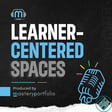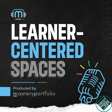
Ken O'Connor says feedback is the focus
Ken O’Connor is an independent consultant on grading and reporting. He has been a professional development presenter in 35 countries outside North America, 47 states in the USA, all provinces and two territories in Canada.
His 23 year teaching career included experience as a geography teacher and department head at 6 schools in Toronto and Melbourne (Grades 7-12) starting in 1967.
He is the author of A Repair Kit for Grading: 15 Fixes for Broken Grades. Third Edition, FIRST Educational Resources, 2022 and How to Grade for Learning: K-12, Fourth Edition, Corwin, 2018.
He is the moderator of the Standards-Based Learning and Grading Facebook group and a founding member of the Canadian Assessment for Learning Network (CAfLN)
Facebook - Ken O’Connor
Twitter - www.twitter.com/kenoc7
Amazon author page: https://www.amazon.com/s?k=ken+o%27connor&crid=2FWQAMLDS0H2L&sprefix=Ken+O%27Connor%2Caps%2C118&ref=nb_sb_ss_ts-doa-p_1_12
If you know someone who you would like to recommend as a guest for our show, complete this survey.

